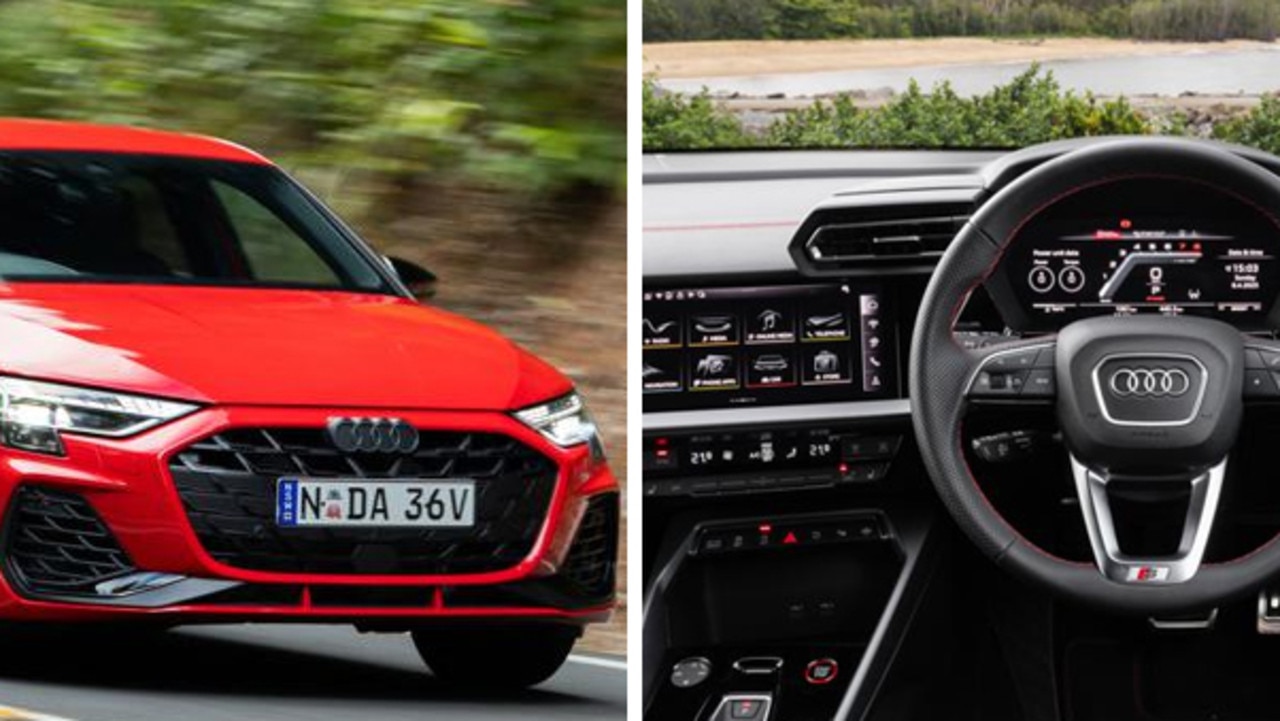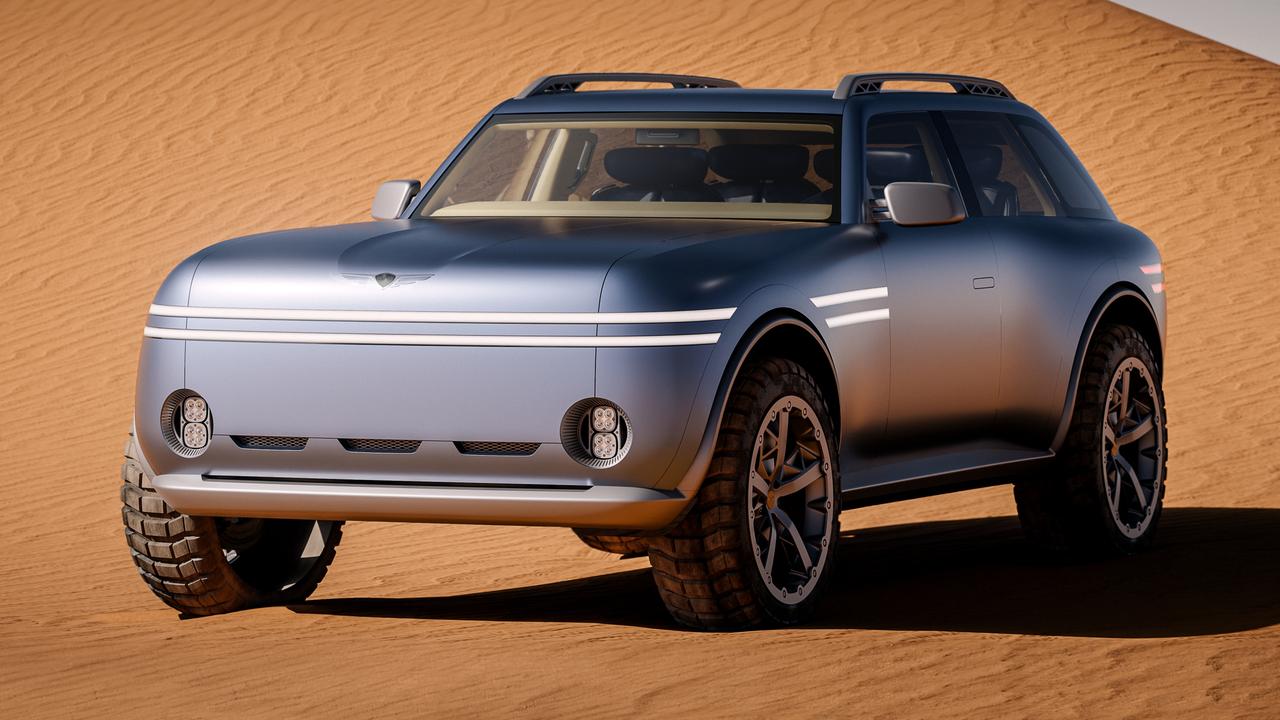Porsche Taycan review: Electric car is in a class of its own
For years Tesla had the high-performance EV market to itself as the car industry struggled to catch up. Porsche’s first EV changes all that.
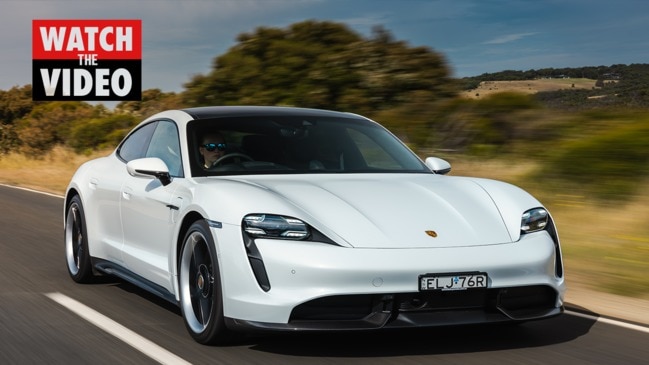
Luxury
Don't miss out on the headlines from Luxury. Followed categories will be added to My News.
The empire strikes back. After years of having its pants pulled down by Tesla, the car industry establishment has finally produced an electric car that shades the Model S.
The Porsche Taycan feels other-worldly — and not just because it sounds like a UFO from a 1970s sci-fi movie. Floor the accelerator from a standing start in the Turbo S model and it will blast its way to 100km/h in a claimed 2.8 seconds. That’s not as fast as Tesla’s claim for the Model S but when the first corner arrives, the Porsche is in another class.
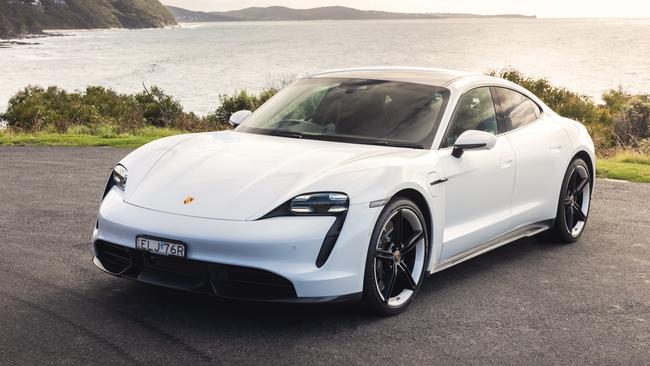
Despite its bulk — it weighs roughly 400kg more than a 911 Turbo S — it stops, steers, grips and goes like a sports car.
On a winding mountain road of hairpins and switchbacks, with a sprinkling of rain for good measure, the Turbo S put 560kW of power and 1050Nm of torque to the ground with stunning poise and clinical precision.
Electric motors on each axle, an electronic slip differential and torque vectoring that transfers drive to the wheels with the most traction help the Taycan slingshot out of corners without a hint of nervousness.
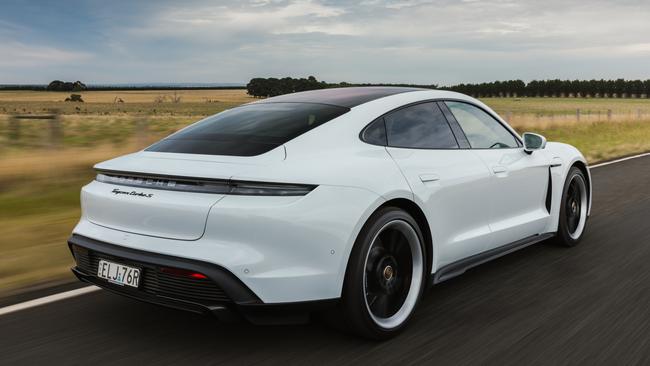
The only thing missing is the theatre of a screaming engine and popping exhaust as you change through the gears. That may be an issue for purists: it can feel a little like sex without the soundtrack. But the thrill of driving cutting edge technology more than compensates for the lack of aural stimulation.
The Taycan is well-priced — for a Porsche. At $338,500 plus on-roads it’s considerably cheaper than the $409,500 Panamera Turbo S and $473,500 911 Turbo S, which is only one-tenth quicker to 100km/h.
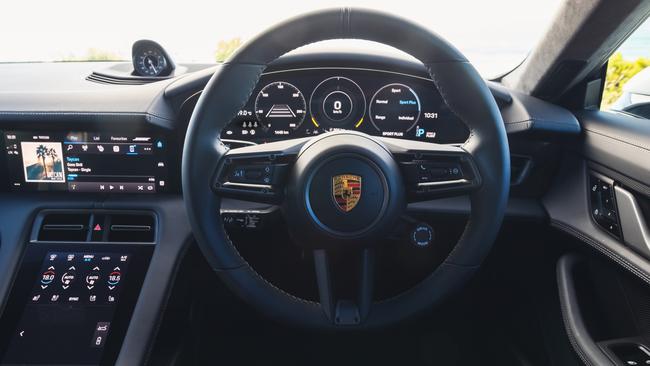
The range starts at $190,400 for the 4S, which puts out up to 390kW and 640Nm for a 0-100km/h time of 4 seconds flat. In between, there’s the 500kW/800Nm Turbo at $268,500. The Turbo has the longest legs of the three, claiming 420km of range compared with 405km for the Turbo S and 365km for the 4S. For $11,590 you can option a performance battery for the 4S that ups power to 420kW and boosts range to 414km.
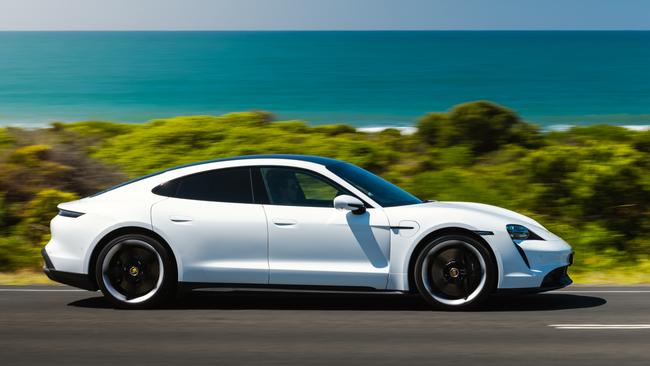
Our test suggests the range claims are realistic. After a 212km loop that included a long stretch of freeway, some city driving, a few rapid takeoffs and a blast along a winding, hilly road, we had 195km of range left. EVs traditionally aren’t as efficient on freeways because there is very little opportunity to recharge the battery via the regenerative brakes, but the Porsche seems to fare better than most.
Porsche says it put a lot of effort into the Taycan’s brake feel, after initial criticism from former F1 driver and test pilot Mark Webber. It claims its regenerative brakes recoup more energy than its rivals, yet the pedal feels like a sports car’s should. On the Nissan Leaf, Hyundai Kona and MG ZS EVs, if you lift off the accelerator the cars slow noticeably, but the Taycan doesn’t. Porsche says it’s set up for keen drivers who like to carry speed into corners.
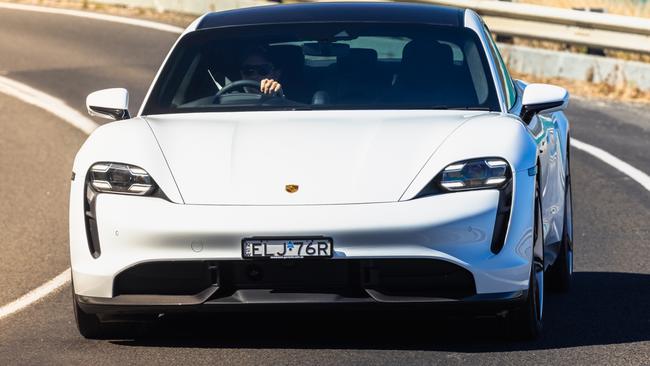
The Taycan is as fast to charge as it is off the mark, thanks to an 800-volt charging system in lieu of most EV’s 400-volt charging. At a rapid charger, that can mean charging from 5 per cent to 80 per cent in just 25 minutes.
At home, through a special Porsche wall charger, it will take about nine hours. The Taycan’s cabin is minimalist luxury. A curved digital screen in front of the driver displays all the vital information, while the music, navigation and phone are controlled via a touchscreen in the middle of the dash. For $2150, you can option a third screen for the passenger, while there’s a fourth screen lower down for the aircon and other functions. It’s a big departure from previous Porsches, which were littered with buttons and knobs.
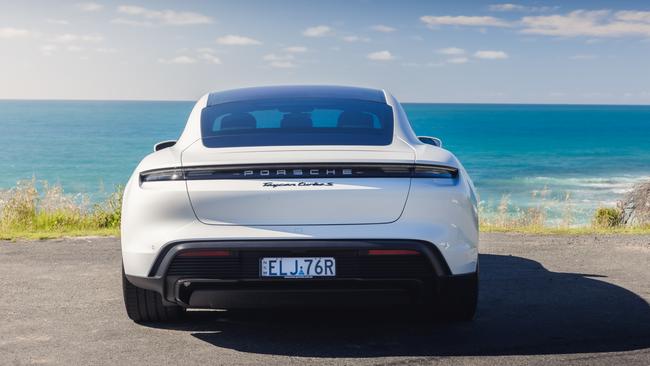
The build quality and cabin materials are a big step up from Tesla and the back seat is big enough for two adults, provided they’re not too tall. You can option five seats, although things would be cramped in the back.
It’s hard to find fault with the Taycan, although the three-year warranty is too short and Porsche is still playing silly buggers with the options list. Our test car had $18,000 worth of extras, most of which are standard on cars a quarter of the price.
Tesla’s Model S is cheaper and faster with longer range and more space, but it can’t match, the Taycan’s looks, luxury and driving finesse.
VERDICT 4.5/5
Great to look at, stunning to drive, the Taycan is Porsche at its brilliant best.
PORSCHE TAYCAN TURBO S VITALS
Price: About $366,000 drive-away
Warranty/servicing: 3-year/unl’td km, no capped price servicing
Engine: Dual synchronous electric motors, up to 560kW/1050Nm
Safety: 10 airbags, auto emergency braking, adaptive cruise control, lane-keeping and blind-spot warning
Thirst: 285Wh/km
Range: 405km
Spare: None
Cargo: 450 litres
Originally published as Porsche Taycan review: Electric car is in a class of its own


